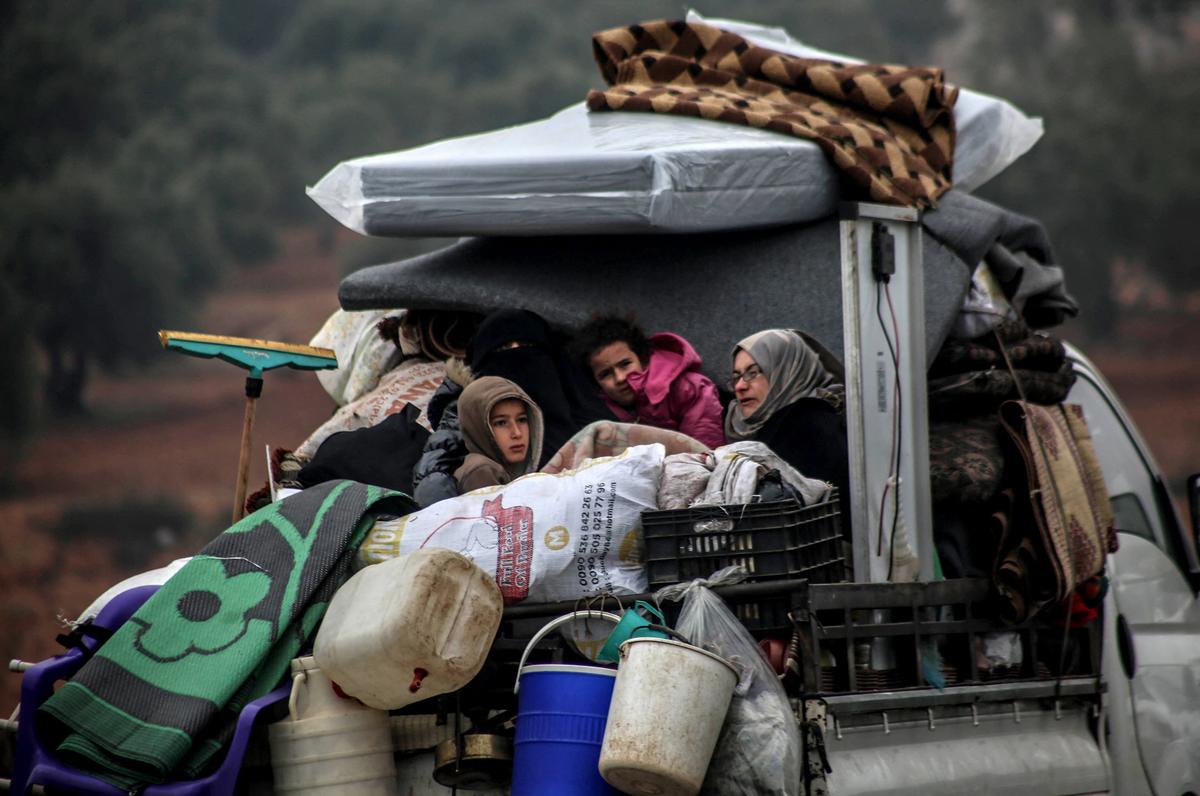Thousands flee homes in northern Myanmar as fighting intensifies
Thousands flee homes in northern Myanmar as fighting intensifies

MYITKYINA, Myanmar, September 28 (UNHCR) - Fighting in northern Myanmar has forced some 10,000 people to flee their homes in the last month. UNHCR is concerned that more families may be trapped in conflict zones plagued by landmines and food shortages.
In recent weeks, fighting in Kachin state between the Myanmar army and the Kachin Independence Organization (KIO) and its armed wing, the Kachin Independence Army (KIA) has displaced more than 8,000 people in the Hpakant area and over 1,000 in Chipwe. The conflict started when a 17-year truce broke down in June 2011, and continues despite regular meetings between the parties to negotiate a peaceful solution in Kachin state.
"We had to flee because there was fighting next to our village," a new arrival told UNHCR staff. "We could not use the road, because it was totally mined. So we had to pass across the mountains and climb over rocks. We could not carry any property with us."
Many of the newly displaced are assisted in UNHCR-supported camps for internally displaced people (IDP), which are mostly situated on church-owned territory or next to Buddhist monasteries. Others are believed to be living with host families.
The UN refugee agency is worried about reports of families trapped in the combat zones. Many civilians are believed to be cut off from food supplies as their livestock has been killed and they have no access to their fields.
"Some families in our village have stayed behind. They are in a very difficult situation," said one of the new arrivals.
"They have little food left, but they cannot go to their fields anymore because of mines. There is still fighting in the area," said another displaced man.
Due to the extensive use of landmines, the IDPs say they have little hope of returning home in the near future. This applies even to those who fled in mid-2011 and whose villages are not directly affected by fighting anymore.
The recent return of Myanmar citizens from China may further add to the displacement problem. Between mid-August and early September, some 5,000 ethnic Kachins who had fled to China in the preceding months were sent back to Kachin state. More may come back on their own.
"There were maybe 200 families in the region where we stayed," explained one man who recently left China. "Life is very difficult for them. They are hiding, they do not have documents and are treated as illegal migrants. They would come back to Kachin [state] by themselves, but lack the money."
The UN refugee agency has been unable to access these groups on the Chinese side of the border. On the Myanmar side, UNHCR has distributed relief items to 1,200 of the recent returnees in four camps in Lwe Je, near the border. An estimated 1,000 returnees have moved on to try to return to their villages in Kachin or northern Shan states. The others remain displaced within Kachin state, unable to go home.
Under the inter-agency response in Kachin state, UNHCR leads protection efforts for internally displaced people and works with local organizations to provide shelter, support the management of the IDP camps and distribute basic items such as cooking sets, plastic sheeting and blankets. The agency is also reaching out to IDPs in the territories held by the KIO/KIA, but access is so far limited. In the government-held areas, the displaced people receive basic humanitarian assistance from UNHCR and other organizations as well as free health care and schooling under government policy.
"We are concerned that the humanitarian situation may deteriorate as more and more people move to the camps and as winter approaches, which will be harsh in some mountainous areas of Kachin," said Hans ten Feld, UNHCR's representative in Myanmar. "Together with our partners, we request all parties to the conflict to grant humanitarian actors full access to all the displaced populations in Kachin state."
In all, more than 88,000 civilians are believed to have fled their homes since June 2011.
UNHCR's emergency response in Kachin state will need to address these growing needs, and will need more donor support to do so. In 2012, the operation received support from the European Union's Humanitarian Aid department (ECHO), the United States and through the United Nations' Central Emergency Reserve Fund.
By Andreas Kirchhof in Myitkyina, Myanmar












